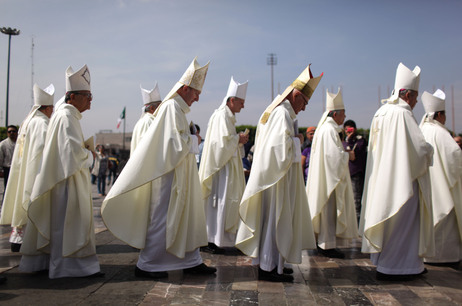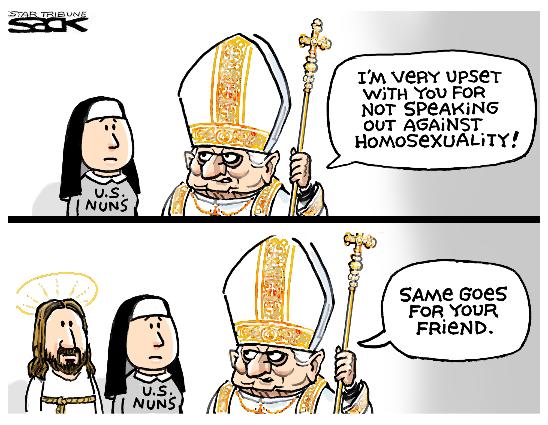For those hoping the debate about priestly celibacy would die down, think again–An Australian priest is pouring gasoline on the fire by claiming that many priests around the world have already cast off their vows to remain celibate.
 Father Kevin Lee, a priest in Sydney, Australia, came forward this week to admit that he’s been secretly married for a full year, and that he hasn’t done much to hide this fact from church leaders, who turned a blind eye to his actions. That is, of course, until he publicly admitted his secret marriage, which immediately led to his removal from ministry. So why come forward?
Father Kevin Lee, a priest in Sydney, Australia, came forward this week to admit that he’s been secretly married for a full year, and that he hasn’t done much to hide this fact from church leaders, who turned a blind eye to his actions. That is, of course, until he publicly admitted his secret marriage, which immediately led to his removal from ministry. So why come forward?
Lee, who is now writing a tell-all book about priestly celibacy, says he wanted to call attention to just how many priests aren’t following that vow in hopes that the church will make a change to the requirement.
“That’s one of the reasons that’s motivated me to make public my admission that I’m one of those people who’s been a pretender: To draw to the attention of the public that there are more like me, in fact most of them,” he told an Australian TV news station.
Of course such a sensational story is going to gain traction in the media, but Lee’s claim that “most” priests are not following their vow of celibacy seems highly suspect. We know some priests broke that vow by sexually abusing minors. We’ve seen high profile cases, like that of former Los Angeles Auxiliary Bishop Gabino Zavala, where a priest has has a secret relationship and, in Zavala’s case, fathered children. And it would be naive to think that some priests have not at one point or another at least been tempted to break the vow of celibacy.
There are others who have left the priesthood to marry, and surely many more who have felt a call to marriage but have sacrificed that life because of a stronger calling to serve as a priest. But even if they have struggled with the vow of celibacy, that doesn’t mean “most” are secretly hiding wives, girlfriends, or other relationships.
Still, with priests like Lee making such claims and the growing presence of married Roman Catholic priests who are former Anglicans, the debate is likely to continue. We can dismiss the question of whether priests already are getting married in secret, but expect the bigger question–should priests be allowed to marry if they so choose?–to stick around for a while.
Complete Article HERE!


